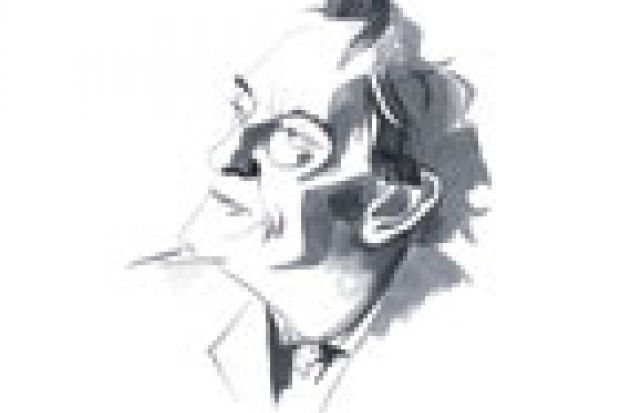I have a terrible admission. I am a Luddite neophyte. After years of resisting what I condemned as a reactionary and unadventurous temptation to hate computers, renounce the internet and decry technological philistinism, I have succumbed. I am suspending work on digital learning. I shall extricate myself from the web. I am resolved henceforth to use computers for nothing but email and word processing - the two compromises that modern professional life necessarily imposes. Three hard knocks have jolted me into acknowledging the truth and changing my way of life.
First, I have developed website-phobia (perhaps “retophobia” will become a recognised psycho-malady of our times, like post-traumatic stress disorder and Gulf War syndrome). Gremlins have devoured some of my students’ grades and a letter of recommendation for a job applicant. I have suffered financial hardship because of the security system my bank uses to protect my account from me. The risibly named “Executive Club” website of British Airways has condemned me to even worse afflictions than those the airport- bound usually suffer. On other sites I have wasted hours - in total, it seems more like months - trying to elude error messages that tell me my log-in details are unrecognisable or that my application has timed out owing to the site’s intractability. I have stuffed my head with pointless passwords for unnavigable sites. Why should one need a password to book a seat at the ballet or a table at a cafe? The multiplication of footling security imperils its own purpose by forcing one to write down all the supposedly secret glyphs that might guide intruders into the deepest recesses of one’s life. I have no more time for time-saving technology. I have refilled my inkwell.
I once hoped Twitter might stimulate a new age of wit and apophthegm. Instead, it multiplies banality. If people want me to know something about them, they can tell me
Second, technology has alienated me from friends. I cannot persist with people who want to substitute virtual friendship for real amity and who send me demands to befriend them on Facebook or follow them on Twitter or chain myself to them on LinkedIn. No one with a proper sense of the value of reflection and creative leisure could waste time on such barbarous trivialities. I once hoped Twitter might stimulate a new age of wit and apophthegm. Instead, it multiplies banality. If people want me to know something about them, they can tell me - not refer me to the bloated, untargeted egotism of their Facebook pages. There is more wisdom in print than I shall master in what remains of my life: from now on, I shall confine my reading to books.
Finally, I have come to acknowledge that the internet is educationally hostile. The decisive influence occurred at last month’s meeting of the American Historical Association in New Orleans. I took special pleasure in visiting that charming and eccentric city: the association convened there in abiding resentment at the behaviour of the authorities in Atlanta, where, according to the traditional cycle, this year’s meeting should have assembled but where, on the previous occasion, many members suffered officious and intrusive policing, and I was violently arrested and insalubriously jailed for crossing the road in an unauthorised place. The New Orleans police proved much more indulgent and I was able, without mishap, to get over Canal Street and reach the venue for the annual address of the president of the association. William Cronon is an outstanding environmental historian of the North American West. He teaches at the University of Wisconsin-Madison: an eminent place of science and scholarship that has contributed much to the good of the US and the world. The burden of his talk concerned the need for historians to communicate with a wide public rather than talking to each other in the hierophantic language of professional intra-speak. In the course of his appeal, he deplored the way websites are crowding out books.
He told us how, when he lectures, he annotates his slides with suggested readings. Last semester, students buttonholed him to say that they could not find any of the websites he recommended. Cronon had to explain that his references were to books - objects to be plucked from library shelves, and manipulated by turning pages. Most students, he said, now start university with no experience of research beyond the web. Before I had recovered from the shock of Cronon’s revelations, a student of my own told me that she had failed to take account of an important passage in her prescribed reading for me because “Google Books did not reproduce that page”. Critically immature students are suckered by cyber-drivel. They become over-informed and utterly ignorant. In extreme cases, they abjure real life in favour of virtual fantasy.
The prophecy of Thamus has come true. When, in Plato’s Phaedrus, the ingenious Theuth showed him an invention that would “lengthen memory and enhance wisdom”, the sage warned of the consequences of storing data outside the mind. “Your device will make readers forgetful, for they will not have to practise the arts of memory. It will disseminate data, not truth. Your readers will read much and learn little. They will access everything and know nothing. They will be uninteresting companions, because their wisdom will be virtual, not real.” Theuth’s invention was writing. Thamus was wrong about that. He was exactly right about the web.
Register to continue
Why register?
- Registration is free and only takes a moment
- Once registered, you can read 3 articles a month
- Sign up for our newsletter
Subscribe
Or subscribe for unlimited access to:
- Unlimited access to news, views, insights & reviews
- Digital editions
- Digital access to THE’s university and college rankings analysis
Already registered or a current subscriber? Login
